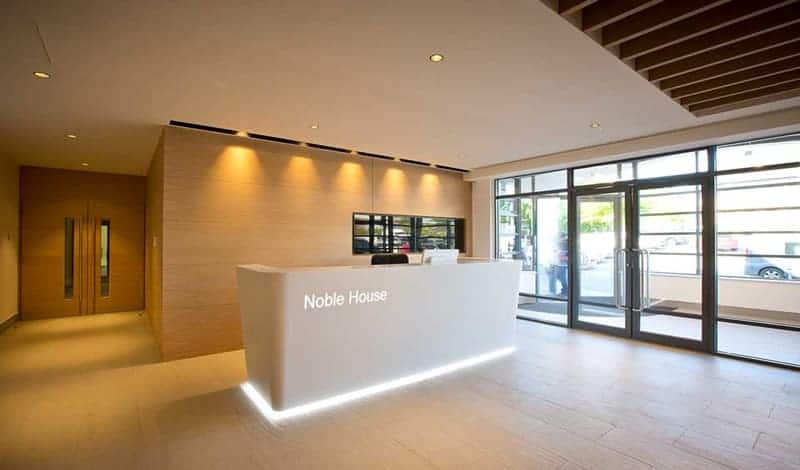Meaning of Receptionist and Reception Office (Business studies)
What is a Reception office?
A Reception office space is where guests are received and attended to. It serves as the visitor’s initial point of physical contact with an organization or company.
A client or customer’s impression of the company is influenced by how he is treated. This is why some firms design a stunning reception to create a good first impression on the visitor or the customer.

The following items should be found in a good reception office:
- A welcoming or reception desk with nice positioning
- An office chair for the receptionist or agent
- Comfortable chairs for waiting guests
- a table for books, periodicals, or to provide visitors somewhere to lay their bag or laptop while they wait.
- A wall clock in the lobby
- Calendar e.t.c
SEE ALSO: Documents that a Receptionist handles
What is a Receptionist?
A receptionist is a crucial component of a company. He or she serves as the organization’s main point of contact with the outside world.
He is a staff of an organization who helps in receiving visitors, helps with their requests or direct them to the appropriate office.
Therefore, the receptionist plays a strategic role in the achievement of company objectives.
He or she may provide security services such as issuing visitors with passes or permits and alerting the department of security to individuals who are disruptive or suspected threats to the organization.
A receptionist’s duties are typically carried out in a waiting room, like the lobby or front desk of a company.
Importance of a Receptionist
- The receptionist helps welcome guests who enter the business or organization.
- He or she aids in guiding guests to the right offices.
- The receptionist makes sure that mail is sorted and handled with extreme care.
- He helps other officers working at the establishment to take calls.
- The receptionist assist his boss in making appointments.
- Keeping office records secure by keeping them in shelves or on the computer is one of the receptionist’s key responsibilities.
- Visitors’ confidence is inspired and maintained by the receptionist.
SEE ALSO:Meaning and types of office correspondence
Because of this, receptionists are trained to act in a way that keeps clients interested. In simple terms, a receptionist’s position cannot be vacant. It frequently offers a stepping stone for advancement both inside and outside of a firm.
Qualities of a Good Receptionist
In order to perform the work properly, the receptionist must uphold specific welcoming attitudes, constructive dispositions, and crucial qualities. Below are the qualities he must possess;
- He should always be polite and composed, regardless of how the visitor acts.
- The receptionist shouldn’t express personal feelings or opinions about a client’s or visitor’s behavior.
- He needs to pay full attention when attending to his clients and customers.
- He should appear clean and decent
- He ought to exercise discretion and respect for privacy. This suggests that the receptionist shouldn’t spread rumors about what he overhears or sees at work.
- He or she should display maturity in resolving the concerns raised and possess strong interpersonal skills.
- When responding to questions, he or she should be respectful. This involves responding with “Sir” or “Ma” and speaking clearly and cheerfully.
- He needs to exercise patience when interacting with clients, guests, and coworkers.
- He should be dedicated to duty and loyal to his organization.
- The management of the company should be able to trust the receptionist since he is the visitor’s first contact with the organization.
- He must have excellent communication skills.
- Responding to calls, and addressing important calls and urgent issues with the business’s management should be done in a professional manner
- The ability to recall visitors’ and customers’ names in order to interact with them as well as coworkers and deal with clients effectively.
- He must be highly knowledgeable about the services his company offers
Rules for Telephone Answering for Receptionists
- Always be polite and friendly.
- Be a good listener, always listen well before answering questions
- Always answer questions directly without going off-topic
- Never be in a hurry to end a call
- Do not be rude or sound rude to callers
- Make sure you understand how to use your phone properly.
Tips For Answering Telephone Calls (Telephone Etiquette)
- Always organize yourself. Prepare all necessary items, such as your message book, desk pads, and pen.
- Always say your name first and say “May I know your name please?” Will be a polite method to get the caller’s name.
- Inquire about the caller’s concern or how you might be of assistance.
- Do not interrupt the caller, be a good listener.
- Always thank the caller for giving you a call
- Send the caller’s message to the appropriate place and in a timely manner
Documents handled by the receptionist
- Visitors’ Register,
- Appointment Lists
- visitors’ Logbooks
- Work form or slips
- Business Cards
- Phone directory e.t.c



